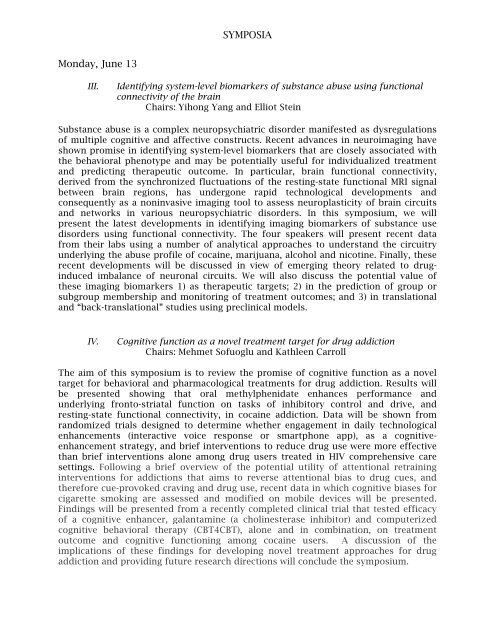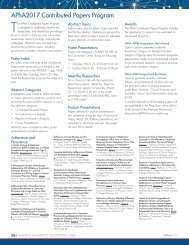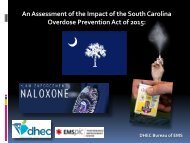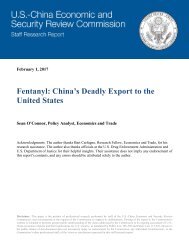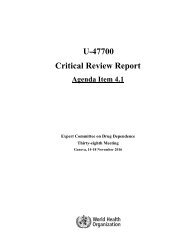CPDD 78th Annual Scientific Meeting Program
2016-78th-CPDD-Program-Book-6-07-16FINAL
2016-78th-CPDD-Program-Book-6-07-16FINAL
Create successful ePaper yourself
Turn your PDF publications into a flip-book with our unique Google optimized e-Paper software.
SYMPOSIA<br />
Monday, June 13<br />
III.<br />
Identifying system-level biomarkers of substance abuse using functional<br />
connectivity of the brain<br />
Chairs: Yihong Yang and Elliot Stein<br />
Substance abuse is a complex neuropsychiatric disorder manifested as dysregulations<br />
of multiple cognitive and affective constructs. Recent advances in neuroimaging have<br />
shown promise in identifying system-level biomarkers that are closely associated with<br />
the behavioral phenotype and may be potentially useful for individualized treatment<br />
and predicting therapeutic outcome. In particular, brain functional connectivity,<br />
derived from the synchronized fluctuations of the resting-state functional MRI signal<br />
between brain regions, has undergone rapid technological developments and<br />
consequently as a noninvasive imaging tool to assess neuroplasticity of brain circuits<br />
and networks in various neuropsychiatric disorders. In this symposium, we will<br />
present the latest developments in identifying imaging biomarkers of substance use<br />
disorders using functional connectivity. The four speakers will present recent data<br />
from their labs using a number of analytical approaches to understand the circuitry<br />
underlying the abuse profile of cocaine, marijuana, alcohol and nicotine. Finally, these<br />
recent developments will be discussed in view of emerging theory related to druginduced<br />
imbalance of neuronal circuits. We will also discuss the potential value of<br />
these imaging biomarkers 1) as therapeutic targets; 2) in the prediction of group or<br />
subgroup membership and monitoring of treatment outcomes; and 3) in translational<br />
and “back-translational” studies using preclinical models.<br />
IV.<br />
Cognitive function as a novel treatment target for drug addiction<br />
Chairs: Mehmet Sofuoglu and Kathleen Carroll<br />
The aim of this symposium is to review the promise of cognitive function as a novel<br />
target for behavioral and pharmacological treatments for drug addiction. Results will<br />
be presented showing that oral methylphenidate enhances performance and<br />
underlying fronto-striatal function on tasks of inhibitory control and drive, and<br />
resting-state functional connectivity, in cocaine addiction. Data will be shown from<br />
randomized trials designed to determine whether engagement in daily technological<br />
enhancements (interactive voice response or smartphone app), as a cognitiveenhancement<br />
strategy, and brief interventions to reduce drug use were more effective<br />
than brief interventions alone among drug users treated in HIV comprehensive care<br />
settings. Following a brief overview of the potential utility of attentional retraining<br />
interventions for addictions that aims to reverse attentional bias to drug cues, and<br />
therefore cue-provoked craving and drug use, recent data in which cognitive biases for<br />
cigarette smoking are assessed and modified on mobile devices will be presented.<br />
Findings will be presented from a recently completed clinical trial that tested efficacy<br />
of a cognitive enhancer, galantamine (a cholinesterase inhibitor) and computerized<br />
cognitive behavioral therapy (CBT4CBT), alone and in combination, on treatment<br />
outcome and cognitive functioning among cocaine users. A discussion of the<br />
implications of these findings for developing novel treatment approaches for drug<br />
addiction and providing future research directions will conclude the symposium.


